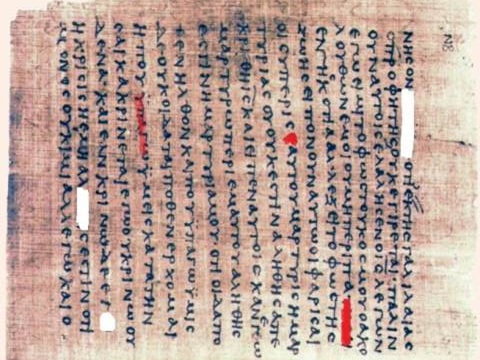
The Ambiguity of John 8:58
September 25, 2020
The Orthodox Corruption of John
September 25, 2020The Rise of Christian Beliefs

Ignatius shows how Christology is well underway toward the creedal statements of the councils.
“There is one physician, who is both Aesh and spirit, born and yet not born, who is God come in flesh, true life in death, born of Mary and of God, first passible and then impassible, Jesus Christ our Lord” (Eph. 7.2).
“Our God Jesus Christ was conceived by Mary” (18.2).
Ignatius even speaks of the “blood of God” (Eph. 1.1) and of “the suffering of my God” (Rom. 6.3) and seems to suggest that Jesus himself brought about his resurrection from the dead (Smyrn. 2.1, in an antidocetic context!)…
The assimilation of Jesus with God soon becomes the rule among the proto-orthodox.
Second Clement (1.1) states that we are to think of Jesus as of God.
In Ep. Apos. 17 (28), Jesus refers to the parousia as “the coming of my Father”; as this causes confusion in the minds of the apostles, he explains in an (exaggerated) Johannine vein: “I am completely in my Father and my Father is in me.”
Toward the end of the second century, Melito of Sardis can even claim that the Creator of heaven and earth was nailed to the cross (Homil. 96).
The farther one moves from the Jewishmessianic roots of Christology, the more the humanity of Jesus fades.

